January 6th, 2018 — 12:37am
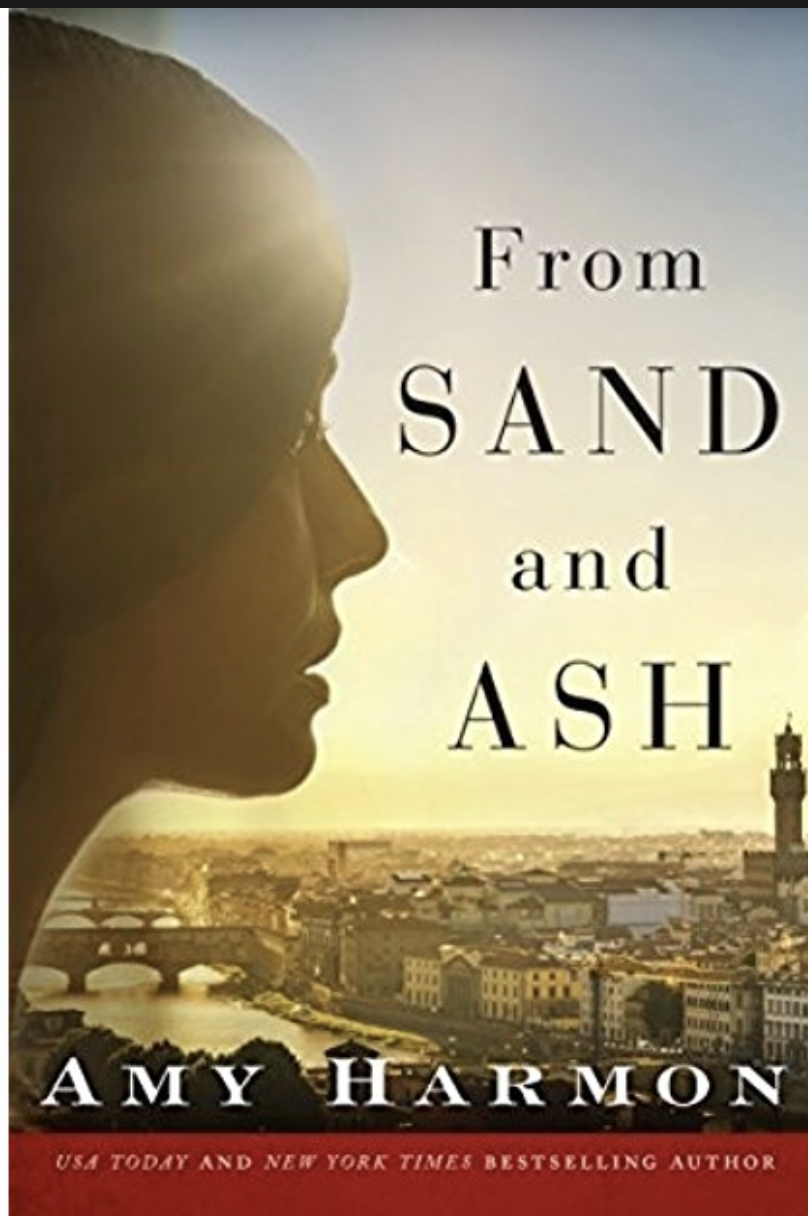 From Sand and Ash by Amy Harmon
From Sand and Ash by Amy Harmon
If I had to make a list of the books that made the greatest impression upon me, I’m pretty sure I would include the Diary of Anne Frank, Schindler’s List and Sophie’s Choice. Not surprising these books all deal with the Holocaust. Growing up in the post World War II, I became acutely aware of the details of what was done to the Jewish people in Europe in the previous decade. My own relatives who are not “survivors” but had family in Europe who perished during that period of time rarely talked about the details which probably fueled my interest. Being Jewish, I felt a personal connection to understand this horrific period of history. As a young psychiatrist working in Brooklyn, I treated a number of children of concentration camp survivors which made a lasting impression on me.
In the past few years, several excellent books which delved into this subject have been reviewed in this blog. This includes How we Survived, The Nightingale, All the Light We Cannot See, Once We Were Brothers, Maus I&II and The Book Thief.(you can click these titles to see my review of each of them )
This current novel From Sand and Ash by Amy Harmon examines the impact of the Holocaust in Italy. In particular, it puts a light on the heroic efforts of members of the Catholic clergy who secretly risked their lives to save many Jews who had become the target of the fascist government of Mussolini which was was allied with Hitler.
The main characters are a Catholic priest and a Jewish young woman who grew up together since childhood. The author in the postscript revealed that these characters were fictional but all the horrible events depicted were real and based on factual events. The author appeared to pay close attention to historical details at the same time that she wrote a beautiful love story. As I finally closed the book after completing it I asked myself three familiar questions: How could so many people do such terrible things to the Jews? How did some people develop the courage to risk their lives and the lives of their families to try to hide and save so many Jews. What would I have done if I had faced the challenges of that time period?
This is a well-written book that may not answer these questions but will provide a page turning experience, which will hold your interest and attention as well as connecting to your emotions.
To purchase this book from Amazon, please click here
Comment » | FH - Fiction Historical, FR - Fiction Romance, Uncategorized
September 25th, 2016 — 10:53pm
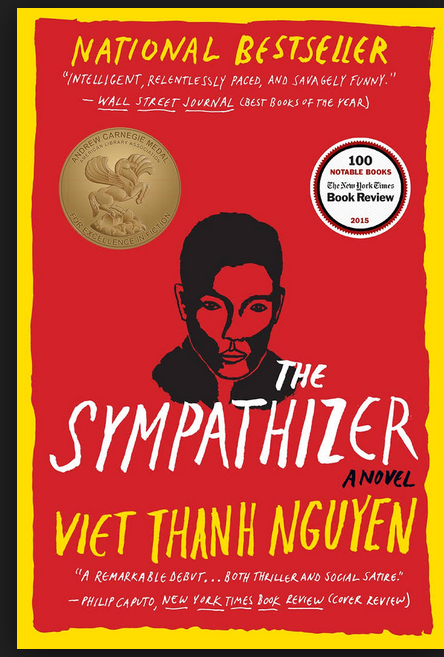 The Vietnam War was of my generation. I served in the Air Force in Texas 1968-1970. I recalled vividly the anti-war protesters of that time. There were many great movies about this war that I have seen which includes Apocalypse Now, Platoon and many others. I have met and spoken with refugees from Vietnam including those who identified themselves as “Boat People.” I have a rudimentary understanding of the French colonialism of Vietnam, the rise of communism, the war between the North and South, America’s entry into it and the ultimate withdrawal and the Fall of Saigon. I can’t say that this well-written book clarified this complicated political history to any great degree. In fact, it may have blurred the margins of some of the issues and muted my simplistic view of them. However, what this novel did provide for me was an insight into the personal viewpoints and struggles that many of the native players have gone through as they overtly and covertly battled each other for the heart and soul of this country.
The Vietnam War was of my generation. I served in the Air Force in Texas 1968-1970. I recalled vividly the anti-war protesters of that time. There were many great movies about this war that I have seen which includes Apocalypse Now, Platoon and many others. I have met and spoken with refugees from Vietnam including those who identified themselves as “Boat People.” I have a rudimentary understanding of the French colonialism of Vietnam, the rise of communism, the war between the North and South, America’s entry into it and the ultimate withdrawal and the Fall of Saigon. I can’t say that this well-written book clarified this complicated political history to any great degree. In fact, it may have blurred the margins of some of the issues and muted my simplistic view of them. However, what this novel did provide for me was an insight into the personal viewpoints and struggles that many of the native players have gone through as they overtly and covertly battled each other for the heart and soul of this country.
This is a story of revolution and counterrevolution. It occurred in an era of brainwashing, torture, hidden moles, intelligence and counterintelligence. I realized that one’s belief and loyalty to a particular political cause may very well depend on where you were born. But on the other hand, it becomes clear in this case that once the communist revolution succeeded in the North and then in the South, the so-called collective society itself became oppressive, corrupt and tyrannical. This is certainly one of the messages of this book.
This book was well researched and well written. In fact, it is the author’s style and way with words that entertains as well as educates the reader. While most of the sentences of this book were of average length, there was one somewhat lengthy one which will give you a taste of this book and the skill and style of the author:
We could not forget the caramel flavor of iced coffee with coarse sugar; the bowls of noodle soup eaten while squatting on the sidewalk; the strumming of a friend’s guitar while we swayed on hammocks under coconut trees; the football matches played barefoot and shirtless in alleys, squares, parks, and meadows; the pearl chokers of morning mist draped around the mountains; the labial moistness of oysters shucked on a gritty beach; the whisper of a dewy lover saying the most seductive words in our language, anh oi; the rattle of rice being threshed; the workingmen who slept in their cyclos on the streets, kept warm only by the memories of their families; the refugees who slept on every sidewalk of every city; the slow burning of patient mosquito coils; the sweetness and firmness of a mango plucked fresh from its tree; the girls who refused to talk to us and who we only pined for more; the men who had died or disappeared; the streets and homes blown away by bombshells; the streams where we swam naked and laughing; the secret grove where we spied on the nymphs who bathed and splashed with the innocence of the birds; the shadows cast by candlelight on the walls of wattled huts; the atonal tinkle of cowbells on mud roads and country paths; the barking of a hungry dog in an abandoned village; the appetizing reek of the fresh durian one wept to eat; and the sight and sound of orphans howling by the dead bodies of their mothers and fathers; the stickiness of one’s shirt by afternoon, the stickiness of one’s lover by the end of lovemaking, the stickiness of our situations; the frantic squealing of pigs running for their lives as villagers gave chase; the hills afire with sunset; the crowned head of dawn rising from the sheets of the sea; the hot grasp of our mother’s hand; and while the list could go on and on and on, the point was simply this: the most important thing we could never forget was that we could never forget.
Although I don’t think that this book would be at the top of my list, it did win a Pulitzer Prize. So if this subject is of interest to you, The Sympathizer should be worth the ride.
To obtain a copy of this book from Amazon, click here
Comment » | FH - Fiction Historical
July 14th, 2016 — 11:18pm
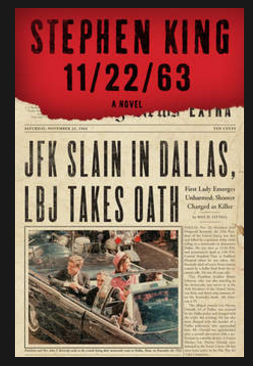 11/22/1963
11/22/1963
By Stephen King
The main character of this novel is Jake Epping, a school teacher in Maine, who is introduced to a “rabbit hole” in time. That is, if he steps through an opening in a pantry and finds an invisible but palpable small staircase, he will come out on the other side on a particular day in 1958. No matter how long he stays at this new time when he steps back to his original time, it will be that he has only been gone for two minutes. He is introduced to this unusual situation by Al, an acquaintance who is an older man dying of cancer who has made several excursions back to 1958 and lived there for a while. As indicated in the title of this book, “11/22/63” is an important date in this story. As any American knows this was the date that President John F. Kennedy was shot and killed by Lee Harvey Oswald. Old dying Al was planning to stop the assassination of JFK and now hopes that Jake will take on this task and he provides him with some preliminary observations on Oswald that Al has made during his several visits back in time.
As you can imagine this can be a complicated process. How would this presidential assassin be stopped? What about the lingering question whether Oswald acted alone? Also, if you are going back in time even for such a worthy cause might you also try to change the course of some other events perhaps prevent an innocent child being murdered or scarred for life? But most important, what are the implications of traveling back in time and altering history?
Who better to take on these questions than Stephen King, one of the most successful, prolific contemporary authors of horror, supernatural fiction, suspense, fantasy and science fiction? This novel published in 2011 was approximately King’s 52nd novel which doesn’t include his very numerous other writing endeavors such as novellas, short stories, movies, television programs and many other projects dating back to 1974 when his first novel Carrie was published. King has established himself as one of the creative writing geniuses of modern times. Not only is he original and very imaginative but he builds these ideas within insightful character development. King also does extensive research on all aspects of his subject matter. In this case, as discussed by the author in the epilogue to the book, which included interviews with him, he has read extensively about the history of JFK and his untimely death. This included numerous books written about all the circumstances, details and cast of characters of the events that occurred on 11/22/63. He also spent time visiting and studying Dallas and The Book Depository where Oswald was perched to shoot Kennedy as well as other places mentioned in the book.
Perhaps the most stimulating aspect of this book to me is the intriguing so called “butterfly question”. If one could travel back in time and change anything, how would that alter future events which would impact on other subsequent events? Would the slightest flutter or minute change in the course of history cause other changes which might cascade to unexpected major events? Would seemingly insignificant changes lead to more meaningful changes? Even if one could alter the course of history, can we be sure it would ultimately be for the better?
As Jake, the main character of this book, immerses himself into the past, readers cannot help but be on the edge of their reading seats whether we are flipping pages or pushing buttons. We find ourselves wondering what would we do and how would we do it if we found ourselves being able to go through that rabbit hole in time? There were surprises, moments of elation and disappointments. I could not wait to find how the story would end and I was sorry when it was over.
To obtain a copy of this book or another book by Stephen King, please click here
Comment » | FH - Fiction Historical, FSF - Fiction Science Fiction
July 1st, 2016 — 8:58pm
The Unquiet Dead by Ausma Zehanat Khan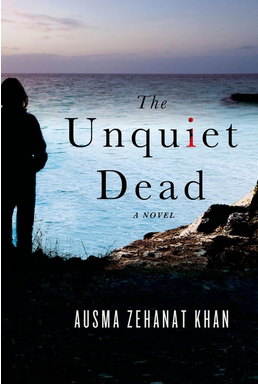
This is a convoluted detective story which ultimately reflects the history of the 1992 Genocide in Bosnia. My reaction and experience to this novel was to be so overwhelmed with the truth and the harsh reality of this modern day horrific set of events which occurred under the watchful eye of the United Nations and the entire world, that I had little interest in the fictionalized story that was being weaved. The appendix at the end of the book which documented numerous such examples stood out in my mind as much more significant than the fictionalized, interspersed chapters in italics, which were supposed to be accounts of people related to the characters in the novel who were killed and tortured. Nothing in the book was as real as the accounts in the appendix at the end of the book. My response to this may be related to the fact that while I knew about the events in Bosnia I had little familiarity, previously, with the details.
If this fictionalized story stimulated any special thoughts in my mind, it would be identifying with a dilemma of one of the main characters in the story. That is, if I knew for sure that I were face-to-face with a horrible murderer of many people who had personally brought about death, rape and torture of many friends and family – and if the authorities had failed to act and bring him to justice despite my efforts to provide documented information about what he had done and his availability to be captured, and if I had the ability and the opportunity to push him over a cliff to his death and never be found out to be the killer, would I do it?? I suppose that is a no brainer. The book did suggest the question also, should the police arrest me if they believed I did it?
To obtain a copy of this book from Amazon, please click here
Comment » | FH - Fiction Historical, FM - Fiction Mystery
June 4th, 2016 — 12:30am
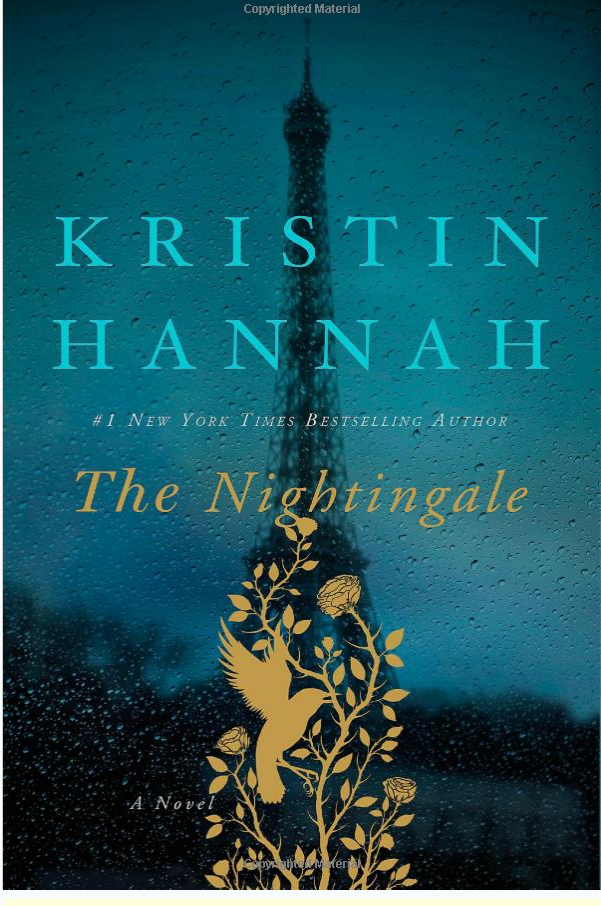 The Nightingale by Kristin Hannah
The Nightingale by Kristin Hannah
If there is any book that has greatly contributed to my understanding of the bravery and resilience of victims of Nazi, Germany it was The Diary of Anne Frank. That book was written by a teenage girl who was hiding in Amsterdam for two and half years until she and her family were betrayed and she was killed. There have been many subsequent books about World War II and the Holocaust. Yet none of them has done it better than The Nightingale by Kristin Hannah, an American novelist who was a lawyer turned writer. She did not go through any horrendous experiences as did Anne Frank and others in her own life but she obviously is a thorough researcher and a very skilled, sensitive writer who has written many successful novels prior to this number one bestseller.
Ms. Hannah has told the story how she came across the account of a Belgian woman, Andrea DeJoneg who was part of the underground resistance during World War II and guided many downed Allied pilots across the Pyrenees Mountains into Spain at the risk of her own life. Based on her research and her insight into the human psyche, Ms. Hannah was able to create the characters of this book. She recounted the acts of tremendous bravery that were shown by her protagonists and she was empathically able to describe their emotional experiences in a very believable manner.
The author focused mainly on women, particularly two sisters, Vianne and Isabelle Mauriac who were not Jewish and lived in Carriveau, a small French village that was occupied by the Nazis during World War II. The reader comes to understand the backstories of these women. Isabelle, the rebellious one, ultimately becomes a very brave woman who shepherds downed British and American pilots across the rugged mountains to safety, risking the severe repercussions which she knew would happen if she were caught.
Her sister Vianne became a heroine in her own right, hiding Jewish children when their parents were taken away by the Nazis. Her actions reawakened questions that we have asked ourselves over the years. Would we have taken in a child (or an adult) to hide or disguise them, when to have been discovered would not only endanger our lives but those of our children? There was another point in question raised by this book when at the end of the war Vianne is faced with the prospect of now having to give up her five- or six-year-old child that she has raised for the past few years when her Jewish friend was taken away to the concentration camps. Now after the war was over, relatives of the deceased Jewish parents want to take this child to America so family there can raise him. But perhaps the most challenging question that the characters in this book face is whether Vianne should tell her husband, who returned home after being a POW held by the Nazis, that the pregnancy with the child that he now feels is his child, but was actually conceived shortly before they reunited, is really the pregnancy of the brutal rape from the German officer who made her house his living quarters before he retreated with the Nazis when the Allies liberated France. Should she have told her husband the truth and should she now more than 40 years after the end of the war tell the truth to the now grownup child who is a successful surgeon and very attentive to his mother.
It is these stories as well as the vivid description of life in occupied France as well in the concentration camps, which are part of this novel that makes this book so unforgettable. It well deserves the acclaim that it is receiving and I’m sure it will be made into an unforgettable movie.
To obtain a copy of this book from Amazon, please click here
Comment » | FG - Fiction General, FH - Fiction Historical
January 13th, 2016 — 11:06pm
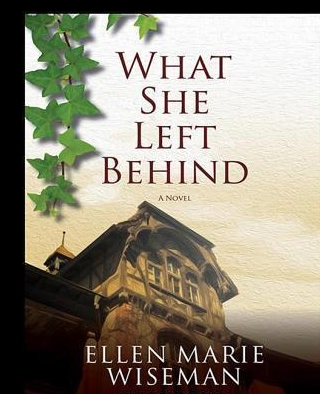 What She Left Behind
What She Left Behind
By Ellen Marie Wiseman
This book is composed of two interweaving stories. Clara, a woman who lived in the 1930s was committed to a mental institution against her will based on her wealthy father’s unhappiness about her Italian immigrant boyfriend and her refusal to marry the rich guy that her father picked out for her. The other story is about a current day teenager named Izzy who is a foster child of Peg and Harry after having lived with several previous foster parents since her mother unexplainably murdered her father. Peg is working on a museum project examining newly discovered suitcases of belongings of former patients (including those of Clara) of a now closed psychiatric facility, in order to gain some understanding of their lives. Izzy helps out with this project and finds the diary of Clara and becomes interested in her life.
Being a psychiatrist, I was initially drawn to this book with the idea that I would gain some insight into the lives and treatments of psychiatric patients living in the first half of the twentieth century. This was the case and it included vivid description of the treatment that was done at that time such as ice baths, insulin shock therapy and electroconvulsive therapy (ECT).
Although I never worked in a state hospital, when I toured them in the late 1960s, such treatments except occasional ECT under humane conditions were things of the past. As far as the possibility of someone spending most of their life committed to a mental institution based on the word of her father when she clearly did not have a mental illness, I would like to think that this would not have been possible. Certainly, in modern times from my experience someone being hospitalized against their will would have to go through a legal hearing with the patient being assigned an attorney if they don’t have one. Once in a hospital with treatment with modern-day medicines (which were not really available until the 1950s) most mental illness can be put at least in temporary remission with such treatment. Today, there would be reviews by multiple doctors with no mandate to keep the person in the hospital against their will unless they were a danger to themselves or others due to a mental illness. I would hope that nothing like Clara’s situation could occur today. Obviously, I can’t speak for every state hospital in the United States and certainly things were different in the 1930s.
There was another aspect of Clara’s case was particularly disturbing to me in that the psychiatrist in charge of her care was depicted as a mean, cruel, selfish man who was mainly responsible for Clara’s lost life. I felt it was an unfair indictment, which suggested all psychiatrists of that time might have been of the same cloth. I understand that the author has the creative choice to develop characters in whatever fashion she chooses. I probably would not be complaining if the character were a dishonest lawyer who did unsavory things in the interest of an interesting storyline but nevertheless, I felt that this book was stigmatizing my profession.
There was particular theme of this book, which also had a special interest to me. Three characters in the book were driven to try to understand their early origins. Izzy, understandably could not fathom why her beloved mother murdered her father. This ultimately led her to empathize with a schoolmate who had some parental trauma. It contributed to her mission to find Clara’s daughter who was essentially separated from her at birth, and hand over her mother’s diaries so she could know about her mother’s story. Clara’s daughter led a life of yearning to know what happened to her mother and Clara similarly went through life wanting to know what happened to her daughter. This is a variation of a theme, which I have seen played out in many people’s lives as well as in some interesting movies. Persons, sometimes separated at birth or when they are quite young often yearn to know their biological parent or parents with whom they may have had no relationship for decades. I have reflected on the psychodynamics of these issues in a psychiatry blog that I write. Therefore, I was particularly interested to see how they played out as major motivating factors in the characters in this book.
I believe the author Ellen Wiseman has created an intriguing story that will hold the interest of the reader whether or not you come from a psychiatric background.
Comment » | FG - Fiction General, FH - Fiction Historical, MHP - Mental Health/Psychiatry
July 5th, 2015 — 1:54pm
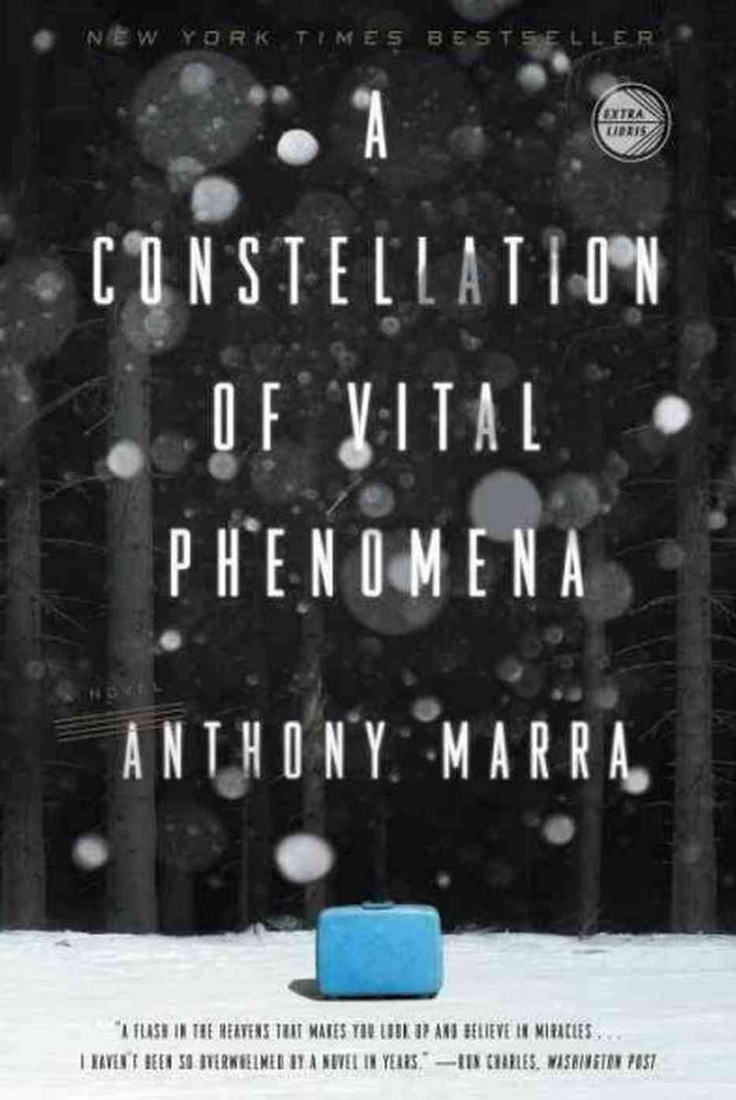 A Constellation Of Vital Phenomena By Anthony Marra
A Constellation Of Vital Phenomena By Anthony Marra
Despite universal raves about this book, I found it, at best, a very well written depressing book about a piece of Russian history I know very little about and still am not very motivated to study further. It does however capture the inhumanity that existed in the late 20th and early 21st Century and in this case focuses this damning searchlight on the Russian Government and a subset of its people. Such disregard for people who are of a different origin obviously is not exclusive with the ethnic group involved in this book. Sadly, we see similar antagonistic behavior in the United States if you scan today’s headlines although not acted out on the widespread scale that we found in the pages of this novel.
The centerpiece of this book is a small village in Chechnya. History tells us that the Russian Federation invaded this country in the 1990s to prevent it from leaving the Soviet Union. We follow a handful of characters throughout this book. One is eight-year-old Havaa who flees with a neighbor after the “Feds” killed her father and burnt her home down. The neighbor is a doctor who asks the surgeon of a nearby hospital to take the girl in if he will work helping out at the hospital. Fleeing refugees seem to be the most common patients at this hospital and they appear to either die or have amputations of their limbs from injuries, frequently with dental floss for suturing, since the hospital is chronically short on supplies. The new doctor is also short on medical skills but is a good artist. So he draws portraits of the deceased patients, which get hung in the local town as more or less death notices and memorials to them.
While the tone of this review may seem flippant, that was not the mood of the book. The author clearly tries to convey the caring that the people had for each other. Refugees roaming from one city to another were given rooms to stay overnight by local residents although they could only pay a symbolic pittance. On the other hand we are given graphic descriptions of how a person can be tortured by the government and how someone could ultimately become an informer who turns in just about all his friends. We also learn what a father might do when he learns that his son is such an informer.
The time span of this book is relatively short but it is greatly expanded by the author’s use of flashbacks. Mr. Marra has a way with words and metaphors that is captivating but the characters are somewhat in the shadows. One of the tests I give myself to see if a book has made a distinct impression on me is to see if in my mind I could cast a movie with known actors and actresses. In this case they didn’t stand out enough for me to do it.
Comment » | FH - Fiction Historical
May 12th, 2015 — 1:47pm
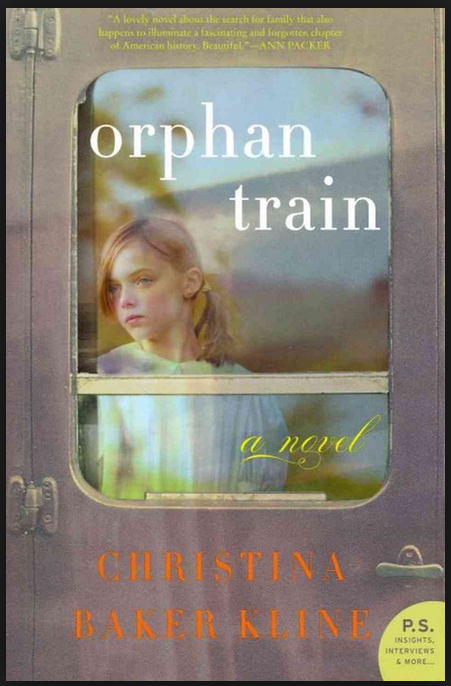
Between 1854 and 1925, there were regular train excursion transporting more than 200,000 orphans from the East Coast to the Midwest in search of people who would take in these orphans. There would be posters displayed in small towns announcing the impending visits of this train with orphans available for adoption. Couples who wanted a child because they could not have one, or because they wished to make an addition to their family, or perhaps because they needed workers to help in the field or their business, would come to the train station to check out the orphan children. These children may have been abandoned because of poverty or the death of both parents. Sometimes, there were dire circumstances of how the parents died, such as we learned about in one of the characters in the book where most of her family was killed in a terrible fire in New York City and there was no one to care for her. There was an organization that kept custody of the children until they could find a suitable person or family who would care for them. Unfortunately, for some of the children, they would end up in indentured slavery. Many were forced to work in the farm fields or do menial tasks such as spending many hours as seamstresses. The expectation that these children would be sent to school was often not followed by the people who took custody of them.
This novel follows a few orphan children who were on one of these orphan trains and tells the story of happened to them. It is quite difficult to view these experiences through the eyes of the orphan children. We see how a child would feel being on display for acceptance or rejection. This story also looks at the powerful, perhaps universal need to search out or locate a biological parent or child that through various circumstances has had no contact with their biological relatives. The desire to meet that person and maintain a bond with them is very powerful and has complicated psychological and perhaps biological determinants. I have written about this topic elsewhere.( click here to see article)
The author, Christine Baker Kline has done her homework and studied the history of the real orphan trains and read many of the writings of the riders of these trains who were now in their ninth or tenth decade of life. Through her interesting and well constructed story, she has enlightened us about an important piece of history as well as providing insight into human relationships.
Comment » | FH - Fiction Historical
February 25th, 2015 — 2:40pm
‘All the Light We Cannot See’ by Anthony Doerr. 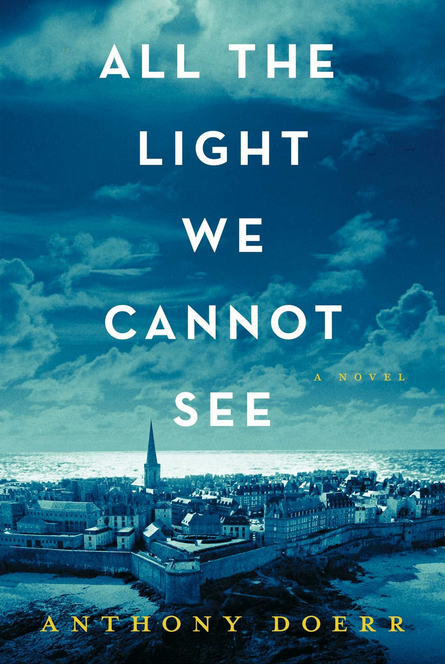
Why does a man who was born more than 30 years after the start of World War II decide to write about the lives of a young blind girl and a German youth during this period of time where their lives ultimately intersect?And why do I, who was born just before the start of this war, find myself still seeking out books about this period of time? This is a question I cannot answer, but I do have a recommendation for the readers of this blog, which I will share at the conclusion of this review.
Marie-Laure was born in Paris and became blind at the age of six. She was the daughter of a widowed locksmith of the Natural Museum of Paris. She was very close to her father, who when war broke out fled with her to the seaside town of Saint-Malo. They lived with her great-uncle who had been traumatized by World War I and was afraid to go out in the street. She was left living with him when her father did not return from a trip to Paris.The great-uncle had a radio in his attic, to which they could listen, as well as transmit. Werner Pfennig was a German orphan who grew up in a children’s home in Berlin. He developed a fascination with and the knowledge about radio circuits, which was the skill that ultimately became his work in the Nazi Army. There are many sub-themes in this developing story, which include the tale of a valuable blue diamond, which people believed gave special powers to those who possessed it. There also was a description of the ruthless training of the German youths and of the bravery of some of the French citizens that occurred during wartime.
Each chapter ultimately alternated between the lives of the blind French girl and the young German lad, as well as a few other people. It should not be surprising to learn that this book is very well-written and well-received. It received a National Book Award and was on the ‘New York Times’ bestseller list for 38 weeks. By examining the microcosm of these two persons’ lives the reader gets a feeling of the humanity, or the lack of it, of some of the people who lived and died during this horrendous recent history. As well-written as this book may be, it is really still a figment of the imagination of the talented Mr. Doerr. It is a fine piece of literature that could round out a reading list for the contemporary reader. However, if you are a young person wishing to be educated on this dark period of 20th Century history or even an older person who has not previously explored this era, this book may not be the place to start. I would suggest two other books; one a classic and the other one probably read by very few people. If you have not read it, I suggest that you read ‘The Diary of a Young Girl’ by Anne Frank, which is the memoir of a young girl in Holland during the Nazi occupation. This perhaps is the most well-known and well-received book about this period of time. The other book that I would suggest is ‘How We Survived – 52 Personal Stories by Child Survivors of the Holocaust’ (See my review of this book). This is a vivid, valid and authentic group of short vignettes that will hold your attention and tell a story as informative and moving as the fine novel which I just reviewed.There are also some other recent novels about the Holocaust that I would bring to your attention: ‘Once We Were Brothers’ by Ronald Balson, ‘My Sister’s Keeper’ by Jodi Picoult and ‘The Book Thief’ by Markus Zusak.( see my reviews of these books) This is obviously a topic that can be explored with many fine pieces of literature, and this book by Mr. Doerr is a very good addition to this library of books.
Comment » | FH - Fiction Historical
January 20th, 2015 — 10:30am
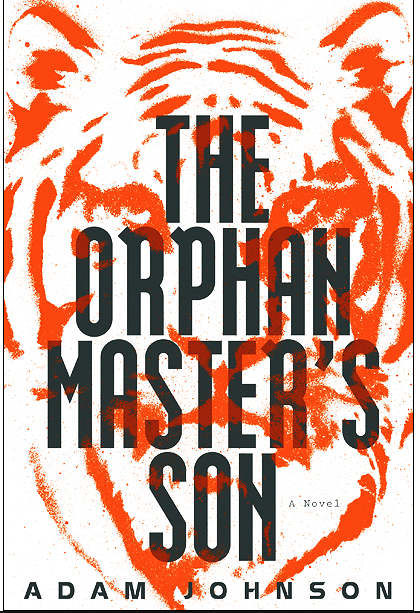 The Orphan Master’s Son by Adam Johnson- This book reminded me of the many science fiction stories I read as a teenager. To me it felt as if we were learning about life on an alien planet. In this society, there is no kind of a stable life style or comfortable relationships. People can be whisked away, to do some work detail, sometimes never to return. If a wife has her husband taken away she might be assigned a substitute husband. On this planet children’s values come from loudspeakers that tell fables or bizarre truth or near truth all the time. Since there is no pretense that this is life on another planet, the reader might try to put it in prospective of something we have known about. Is this a version of the Holocaust where one group of people were completely devalued and then attempts made to ship them off and kill them all? However, here there isn’t one group of people that is subject to annihilation, it can be just about anyone. “ 1984” and Big Brother come to mind but we don’t have to think about a futuristic society because we are already told we are talking about North Korea and the way its rulers or should I say “Ruler” controls everyone’s life. In fact one of the central characters is Kim Jon II,, himself (referred to as “ Dear Leader”), the recently deceased leader of that country who is the father of the actual leader today Kim Jung Un. So if we take the story at face value are we being told the behind the scenes horrible life of the people who live in North Korea? Apparently the truth is that it is very difficult to be confident about what goes on in North Korea today. Adam Johnson, the author has visited the country and tried to speak with people who live there but who usually won’t speak to outsiders. He has told of interviews that he has had with defectors who have come over to “our side.” Johnson himself in interviews has admitted that much of the horrors in his book , he has made up although founded, no doubt ,on the stories he has read and things he has seen. Living in captivity, without descent food, eating flowers, having no toilet, being tortured by the “ autopilot “and ultimately becoming inhuman is apparently not an unusual story. The book is written well and the shifts in time and person as one character inhabits another character are challenging to follow but does help to take us to a deeper reveal of this horrible society that we are being told about. I have tried to understand the awarding of the Pulitzer Prize for this book and perhaps it was for the unique journey that the author chose to take us on. All the details can’t be accurate but the depiction probably is and thus Mr. Johnson has moved the curtain to show us one of the truly tyrannical societies that exists today.
The Orphan Master’s Son by Adam Johnson- This book reminded me of the many science fiction stories I read as a teenager. To me it felt as if we were learning about life on an alien planet. In this society, there is no kind of a stable life style or comfortable relationships. People can be whisked away, to do some work detail, sometimes never to return. If a wife has her husband taken away she might be assigned a substitute husband. On this planet children’s values come from loudspeakers that tell fables or bizarre truth or near truth all the time. Since there is no pretense that this is life on another planet, the reader might try to put it in prospective of something we have known about. Is this a version of the Holocaust where one group of people were completely devalued and then attempts made to ship them off and kill them all? However, here there isn’t one group of people that is subject to annihilation, it can be just about anyone. “ 1984” and Big Brother come to mind but we don’t have to think about a futuristic society because we are already told we are talking about North Korea and the way its rulers or should I say “Ruler” controls everyone’s life. In fact one of the central characters is Kim Jon II,, himself (referred to as “ Dear Leader”), the recently deceased leader of that country who is the father of the actual leader today Kim Jung Un. So if we take the story at face value are we being told the behind the scenes horrible life of the people who live in North Korea? Apparently the truth is that it is very difficult to be confident about what goes on in North Korea today. Adam Johnson, the author has visited the country and tried to speak with people who live there but who usually won’t speak to outsiders. He has told of interviews that he has had with defectors who have come over to “our side.” Johnson himself in interviews has admitted that much of the horrors in his book , he has made up although founded, no doubt ,on the stories he has read and things he has seen. Living in captivity, without descent food, eating flowers, having no toilet, being tortured by the “ autopilot “and ultimately becoming inhuman is apparently not an unusual story. The book is written well and the shifts in time and person as one character inhabits another character are challenging to follow but does help to take us to a deeper reveal of this horrible society that we are being told about. I have tried to understand the awarding of the Pulitzer Prize for this book and perhaps it was for the unique journey that the author chose to take us on. All the details can’t be accurate but the depiction probably is and thus Mr. Johnson has moved the curtain to show us one of the truly tyrannical societies that exists today.
Comment » | FG - Fiction General, FH - Fiction Historical
 From Sand and Ash by Amy Harmon
From Sand and Ash by Amy Harmon
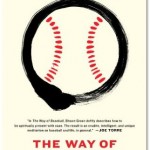
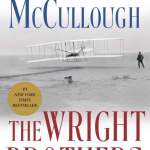
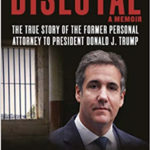
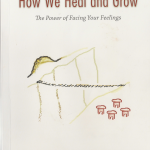
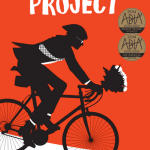
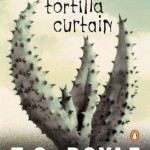
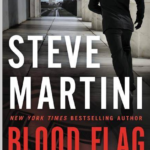
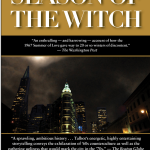
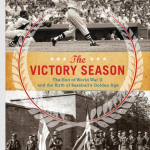




 The Vietnam War was of my generation. I served in the Air Force in Texas 1968-1970. I recalled vividly the anti-war protesters of that time. There were many great movies about this war that I have seen which includes Apocalypse Now, Platoon and many others. I have met and spoken with refugees from Vietnam including those who identified themselves as “Boat People.” I have a rudimentary understanding of the French colonialism of Vietnam, the rise of communism, the war between the North and South, America’s entry into it and the ultimate withdrawal and the Fall of Saigon. I can’t say that this well-written book clarified this complicated political history to any great degree. In fact, it may have blurred the margins of some of the issues and muted my simplistic view of them. However, what this novel did provide for me was an insight into the personal viewpoints and struggles that many of the native players have gone through as they overtly and covertly battled each other for the heart and soul of this country.
The Vietnam War was of my generation. I served in the Air Force in Texas 1968-1970. I recalled vividly the anti-war protesters of that time. There were many great movies about this war that I have seen which includes Apocalypse Now, Platoon and many others. I have met and spoken with refugees from Vietnam including those who identified themselves as “Boat People.” I have a rudimentary understanding of the French colonialism of Vietnam, the rise of communism, the war between the North and South, America’s entry into it and the ultimate withdrawal and the Fall of Saigon. I can’t say that this well-written book clarified this complicated political history to any great degree. In fact, it may have blurred the margins of some of the issues and muted my simplistic view of them. However, what this novel did provide for me was an insight into the personal viewpoints and struggles that many of the native players have gone through as they overtly and covertly battled each other for the heart and soul of this country. 11/22/1963
11/22/1963
 The Nightingale by Kristin Hannah
The Nightingale by Kristin Hannah What She Left Behind
What She Left Behind


